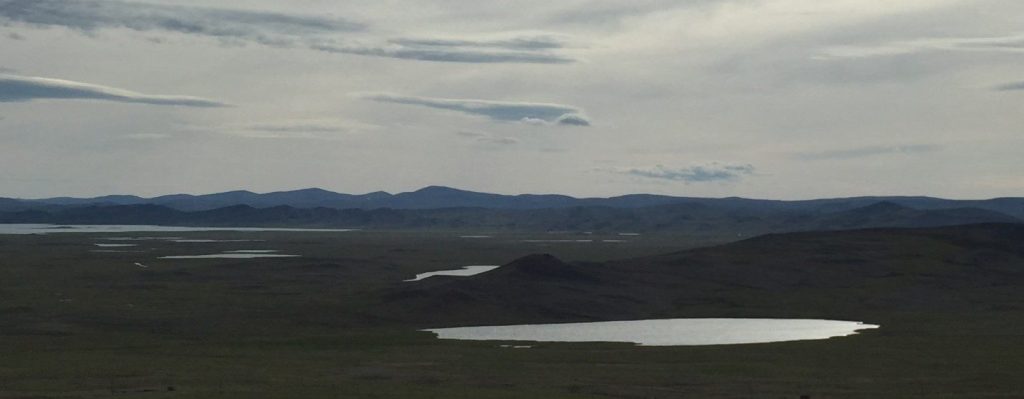Tiksi in Russia

Tiksi is, according to many, Russia’s northernmost town. As such, it is going through major transformations associated with climate change ranging from the melting of the permafrost to increased shipping due to increasing accessibility of the North-East Passage. Yet, since the end of the Soviet Union, Tiksi has been facing a dramatic reduction of its economic activity and population. Since a very large part of its employment base, many see its future as quite unpromising. As a study site, Tiksi brings lessons to be learned from a fragile community that has fared and is still faring through major sources of stress.
In recent years, the Russian government has been conducting an "active" government policy in the Arctic. The system of state regulation of the development of the Arctic Zone of the Russian Federation has been "reconfigured" about "updated" approaches to the development of the Arctic macro-region, aimed at increasing the economic development of the territories and improving the living standards of the Russian Arctic population. In 2020 a whole set of strategic planning documents defining Russia's policy in the Arctic was adopted. The main documents are the following:
- Fundamentals of state policy of the Russian Federation in the Arctic up to 2035;
- Strategy for development of the Arctic zone of the Russian Federation and national security for the period up to 2035;
- State program of the Russian Federation "Social and economic development of the Arctic zone of the Russian Federation" up to 2025.
The regional authorities support the modernization of the system of state support for the regions as well. The fundamental regional document on the development of the Arctic zone of Yakutia was established by Decree No. 1377 of the Head of the Republic of Sakha (Yakutia) dated August 14, 2020. This document is the Strategy of social and economic development of the Arctic zone of the Republic of Sakha (Yakutia) for the period up to 2035 (hereinafter - the Strategy), where Tiksi and Bulunsky district are defined as very significant. Moreover, by the Decree of the Head of the Republic in the framework of the implementation of the Strategy, a project office was founded to support projects of the comprehensive development plan of Tiksi settlement for the period up to 2025, including the attraction of investors.
The publicly available fundamentals of Tiksi's logistical indispensability are the airport and the seaport. Meanwhile, a full-fledged military base and a full-year-round aerodrome guarantee Tiksi's role as a key stronghold in the chain of the northern Arctic Sea shield.
The high level of the strategic importance of Tiksi is caused by the synergy of transport remoteness from the regional capital and high tourist and scientific demands that require the organization of both transport accessibility of Tiksi and infrastructure support of communication facilities with the settlement. Tiksi is also essential for the state because it is the location of a military air defence base and a naval base.
In addition, Tiksi is significant for the popular tourist cruise on the Lena River to the Arctic Ocean "Yakutsk-Tiksi-Yakutsk", international scientific expeditions (about 15 expeditions annually), the state nature reserve of federal importance "Ust-Lensky", polar geocosmophysical observatory, as well as the military base of the 3rd division of anti-aircraft defence of the 45th Army of Air Force and Air Defence of the Northern Fleet.
To improve sustainable regional development, as well as to increase the defence capability of Russia's Arctic zone, a wide range of projects to support and modernize the Bulunsky region are currently being implemented. Tiksi holds a key position in such projects.
In particular, the economic and transport potential of the Republic of Sakha (Yakutia) will be strengthened and increased through the reconstruction of the seaport of Tiksi, which will make it possible to create a central transport hub in the Arctic zone of the Republic of Sakha (Yakutia) to serve export and import shipments along the Lena River and the Northern Sea Route; favourable conditions will be created for the industrial development of marine reserves of hydrocarbons and bioresources.
Along with the renewal of the Moscow-Tiksi flight route, the port reconstruction will contribute to the development of Arctic tourism. As part of measures to develop tourism, the formation of the tourist and recreational cluster "Russian North of the Arctic" is also taking place.
Together with the tourist direction, scientific activities are also being developed. Specifically, it is planned to create a branch of the Scientific and Research Center "North" in the Bulunsky district and a test range near Tiksi, which will allow not only to raise funds from external sources but also to test new technologies in real conditions of the Arctic.